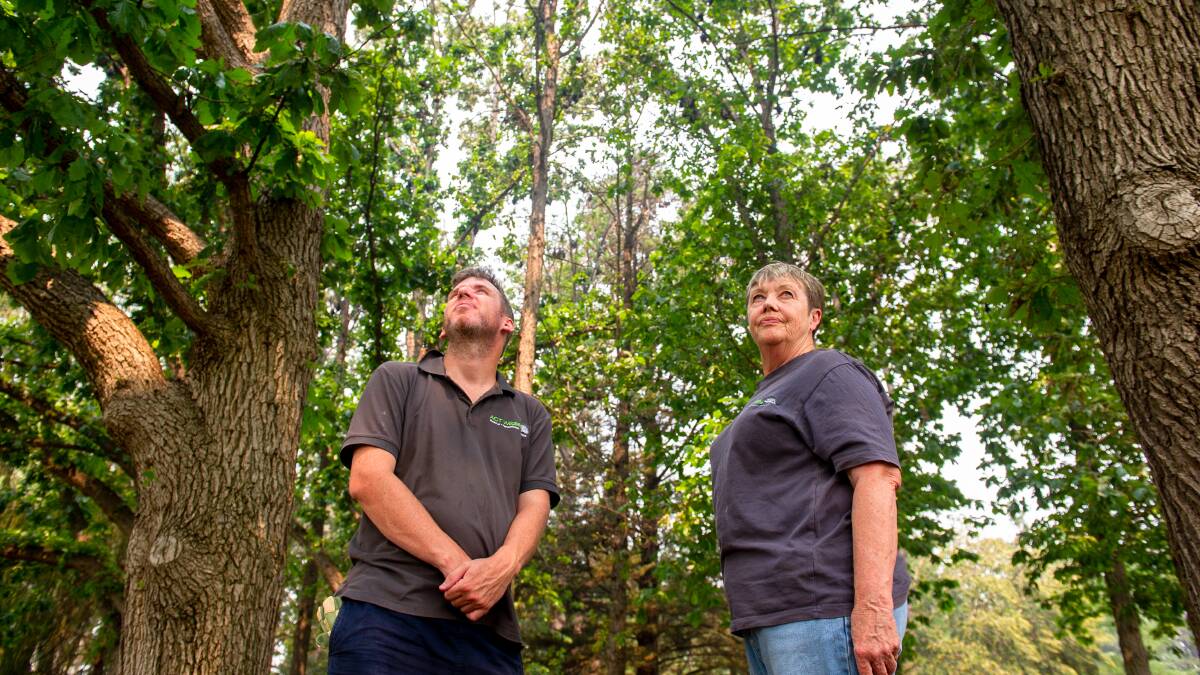As Canberra swelters through a heatwave, with temperatures unprecedented for the month of December, the capital's bat population is among the most vulnerable.
Subscribe now for unlimited access.
or signup to continue reading
On Friday volunteers from ACT Wildlife monitored Commonwealth Park's bat colony as forecast conditions for successive days above 40 degrees posed a high risk for the animal to drop.

ACT Wildlife's Denise Kay said the pups were most at risk, already this season an estimated 19 have died.
"The pups will be the first ones to go, we can rescue them and take them but the adults probably not," she said.
"We will be monitoring them and we'll have sprays if and when they come down the tree.
"If necessary we'll be picking them up and we'll have a triage section."
Grey-headed flying-foxes are particularly susceptible to stress during times of heat and can die from overexertion due to clinging to tree trunks, fanning themselves and flying to seek respite in the shade.
"The flying foxes are mammals and they actually have a higher core body temperature than other small mammals and this heat actually does have a profound effect on them," National Capital Authority manager of open space Michelle Jeffrey said.
"So when you do see bats up in the treetops during the day they might be fanning themselves on a hot day and they are just trying to create a bit of air circulation around their body to cool themselves off.
"It gets to a point their poor little bodies are really stretched to the limit and they are not coping at all and so these are the times where we start to see the deaths of flying foxes because they are just expiring."
READ MORE
Most bats on Friday afternoon in Commonwealth Park could be seen fanning themselves.
The number of pup deaths in Commonwealth Park was a significant number for this time of year, Ms Jeffrey said.
"That's not normal particularly not for this time of the year because of course these prolonged days of hot weather is not normal for this time of year," she said.
"Whereas February we would normally expect a few of these hot days [and] the pups would have been a bit more independent... but at the moment they are still dependent on mum and the hot weather at this early stage of their formation period is really having its toll."
Bats start an annual migration to Canberra from September and stay until just before winter when it becomes too cold. They breed in the park.
Canberra's bat population in Commonwealth Park can reach up to 8000 but Ms Kay said there were about 2088 in the park at present but this is expected to grow.
Commonwealth Park falls under the National Capital Plan jurisdiction and the authority is responsible for the care of the bats.
Bats have faced dire situations across the country due to heatwaves, bushfires and food shortages. The Canberra Times reported an estimated 1500 bats died on the South Coast between November 20 to December 8.
About 20 pups from the South Coast are in the care of ACT Wildlife.
Ms Kay said volunteers to monitor the bats were hard to come by as they are required to be trained and vaccinated against the deadly lyssavirus which some bats carry.
The National Capital Authority warned the public not to go to the aid of an injured bat due to the risk of disease. Ms Jeffrey said people should contact ACT Wildlife if they come across one.


